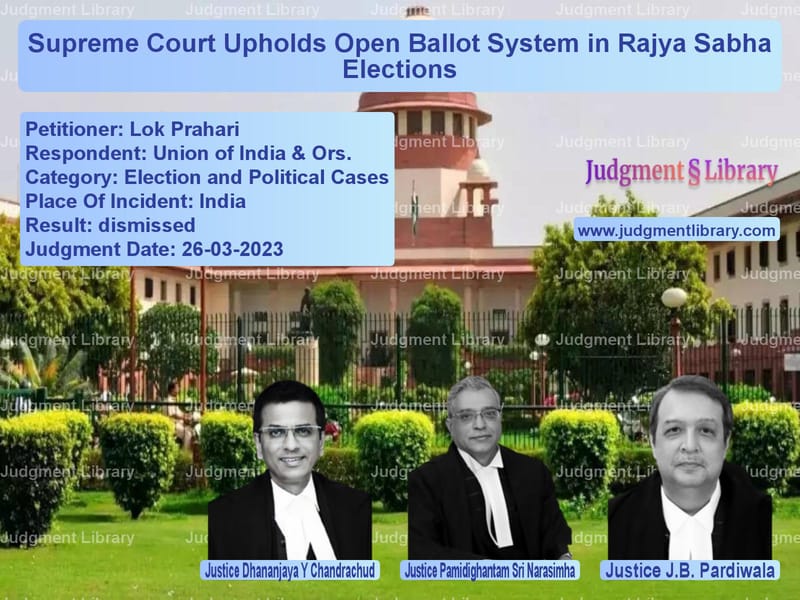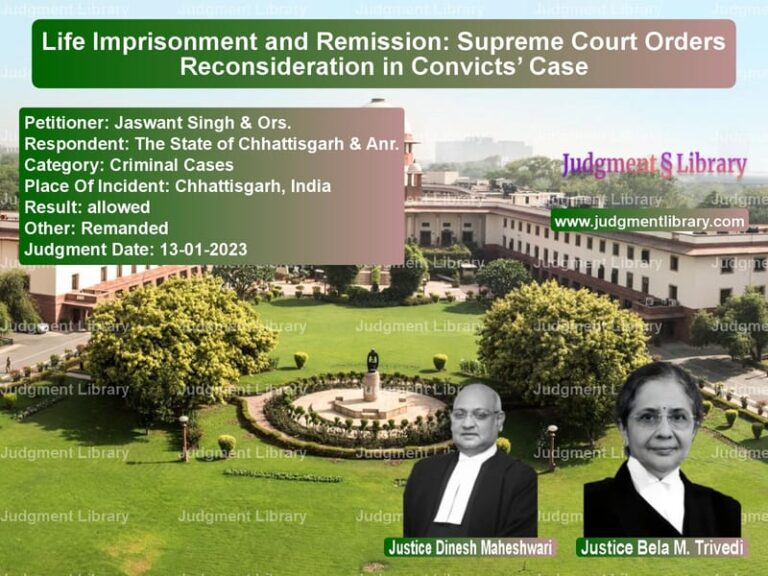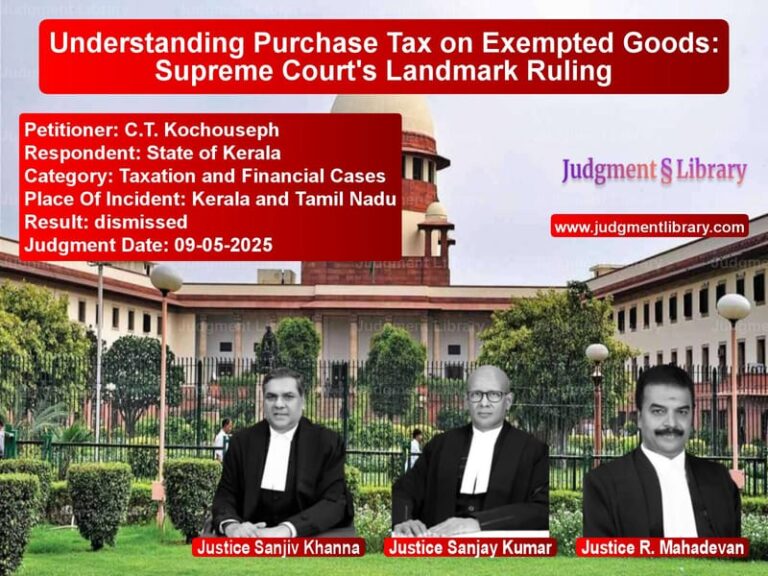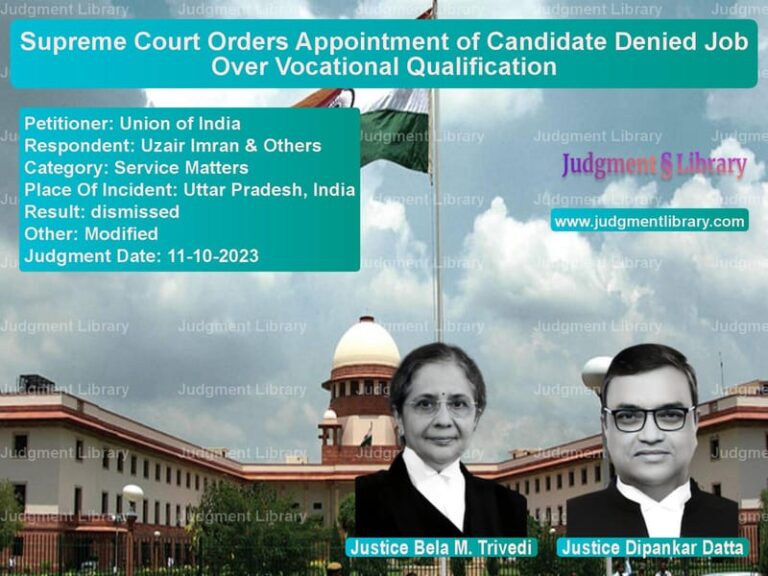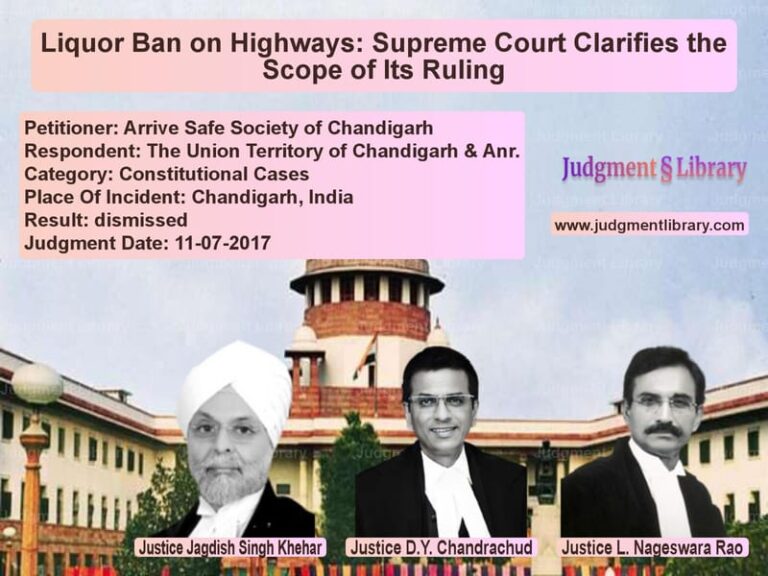Supreme Court Upholds Open Ballot System in Rajya Sabha Elections
The Supreme Court of India recently delivered a significant judgment in Lok Prahari v. Union of India & Ors., upholding the constitutional validity of the open ballot system in Rajya Sabha elections. The ruling clarifies that the voting procedure in elections to the Council of States does not violate democratic principles and is necessary to prevent political corruption.
Background of the Case
The case was brought before the Supreme Court by Lok Prahari, a registered society advocating electoral reforms. The petitioner challenged the constitutional validity of:
- Rule 39-AA of the Conduct of Election Rules, 1961, which mandates open ballot voting for elections to the Rajya Sabha.
- The proviso to Section 33 of the Representation of the People Act, 1951, which requires independent candidates to have ten proposers for nomination.
The petitioner contended that these provisions violated the fundamental rights of electors and created an unfair distinction between independent candidates and those set up by recognized political parties.
Legal Issues Considered
- Whether Rule 39-AA of the Conduct of Election Rules, 1961, violates the secrecy of voting and the principles of free and fair elections.
- Whether the proviso to Section 33 of the Representation of the People Act, 1951, is discriminatory against independent candidates.
- Whether the Supreme Court should intervene in the legislative policy regarding voting procedures.
Arguments of the Parties
Petitioner’s Arguments (Lok Prahari)
- The open ballot system compromises the secrecy of voting, which is essential for ensuring free and fair elections.
- The requirement that independent candidates need ten proposers, while party candidates need only one, creates an unfair disadvantage.
- Rule 39-AA leads to undue influence by political parties, as their agents can verify votes and potentially exert pressure on legislators.
Respondent’s Arguments (Union of India & Election Commission)
- The open ballot system is necessary to prevent cross-voting and corruption in Rajya Sabha elections.
- The secrecy of voting applies primarily to direct elections, whereas Rajya Sabha elections follow the principle of proportional representation.
- The requirement for independent candidates to have ten proposers ensures that only serious candidates contest elections and prevents frivolous nominations.
Key Observations of the Supreme Court
The Supreme Court ruled in favor of the Union of India, making the following key observations:
- Secrecy of Ballot is Not Absolute: The Court noted that while secrecy is a vital component of elections, it is not an absolute rule. The Constitution itself allows for variations in electoral processes.
- Open Ballot Prevents Corrupt Practices: The Court upheld the rationale for the open ballot system, emphasizing that it prevents unethical practices like bribery and cross-voting.
- Legislative Assembly Members are Not Ordinary Voters: The Court clarified that voting for the Rajya Sabha is distinct from general elections, as legislators represent political parties and are expected to follow party discipline.
- Nomination Requirements for Independent Candidates are Justified: The Court found that requiring independent candidates to have ten proposers was a reasonable restriction to ensure serious candidacies.
Key Judgment Excerpts
The Supreme Court, citing previous rulings, observed:
“The open ballot system in Rajya Sabha elections does not violate the principles of free and fair elections. Instead, it ensures party discipline and prevents political corruption.”
Further, the Court held:
“A voter who refuses to disclose the vote to their political party’s agent forfeits the right to vote. This is a reasonable restriction to uphold the integrity of elections to the Council of States.”
Final Judgment
Based on these findings, the Supreme Court:
- Dismissed the petition filed by Lok Prahari.
- Upheld the constitutional validity of Rule 39-AA of the Conduct of Election Rules, 1961.
- Rejected the challenge to the proviso of Section 33 of the Representation of the People Act, 1951.
Accordingly, the Supreme Court dismissed the petition and ruled in favor of the Union of India.
Implications of the Judgment
The ruling has significant implications for electoral law and governance:
- Strengthens Electoral Integrity: The judgment ensures that Rajya Sabha elections remain free from corrupt practices like bribery and cross-voting.
- Confirms Party Discipline: The decision reinforces the expectation that legislators vote in line with their political parties in indirect elections.
- Discourages Frivolous Candidacies: By upholding the proposer requirement for independent candidates, the Court has ensured that only serious contenders enter the electoral fray.
- Prevents Judicial Overreach: The ruling underscores the principle that electoral processes are best left to the legislative domain unless they violate fundamental rights.
Conclusion
The Supreme Court’s decision in Lok Prahari v. Union of India & Ors. upholds the validity of the open ballot system in Rajya Sabha elections and reinforces the importance of party discipline in proportional representation. By dismissing the petition, the Court has ensured that voting procedures in indirect elections remain transparent and immune to corrupt influences. This judgment will serve as a crucial precedent in electoral law and governance.
Read also: https://judgmentlibrary.com/delhi-mayor-election-dispute-supreme-court-ruling-and-its-impact/
Petitioner Name: Lok Prahari.Respondent Name: Union of India & Ors..Judgment By: Justice Dhananjaya Y Chandrachud, Justice Pamidighantam Sri Narasimha, Justice J.B. Pardiwala.Place Of Incident: India.Judgment Date: 26-03-2023.
Don’t miss out on the full details! Download the complete judgment in PDF format below and gain valuable insights instantly!
Download Judgment: lok-prahari-vs-union-of-india-&-ors-supreme-court-of-india-judgment-dated-26-03-2023.pdf
Directly Download Judgment: Directly download this Judgment
See all petitions in Legislative Powers
See all petitions in Public Interest Litigation
See all petitions in Judgment by Dhananjaya Y Chandrachud
See all petitions in Judgment by P.S. Narasimha
See all petitions in Judgment by J.B. Pardiwala
See all petitions in dismissed
See all petitions in supreme court of India judgments March 2023
See all petitions in 2023 judgments
See all posts in Election and Political Cases Category
See all allowed petitions in Election and Political Cases Category
See all Dismissed petitions in Election and Political Cases Category
See all partially allowed petitions in Election and Political Cases Category

